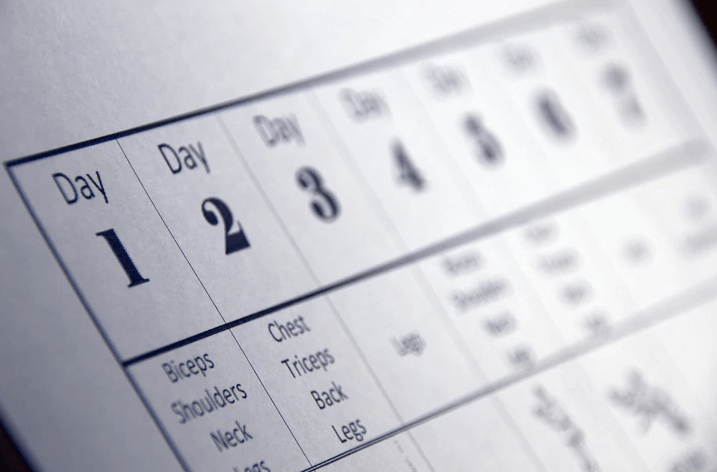Is Working Out 7 Days a Week Too Much? When is It Beneficial, When is it Not?

Working out 7 days a week... I mean is this really something that you are considering?
Well it was and still is what I do. For me it's not really about trying to stay fit, its sometimes about just the enjoyment of it and often times its because it's just habit for me. I love it.
Oh and also cuz sometimes I really do not have anything better to do.
And I know I am not the only one, many people want to work out every day of the week, wondering whether that can potentialize the advantages of exercise even more or if it's just going to be too much.
Well, first things first, keep in mind, you don’t need to work out everyday to reap the benefits of physical activity, especially if your exercises are decent to high-intensity.
If you’re going to incorporate low to moderate-intensity exercises, however, then working out 7 days a week can actually be a good idea. That also applies if you have a specific goal in mind.
Why I Work Out 7 Days a Week

As is the case with most aspects of a workout, everyone is different. I personally do exercise seven days a week and have been doing so for the last three years. Like I said, It is just habit for me.
It makes me feel good.
I never do the same thing every day, and I carefully listen to my body when I’m pushing it too hard. The moment it feels like I’m low on energy, I simply lighten up and rest for a while.
I'm not deadlifting and squatting on the same day, and I am not doing full body workouts every other day, nor am I going for a long run after leg day.
If you’re planning on regularly working out and especially if you are lifting weights, then you’ll need to worry about a few things, such as overtraining, overuse injuries, and mental fatigue.
Overtraining isn’t really easy to spot. Indicators of it include an unusual lack of energy, elevated pulse when you wake up, repeated poor sleep, etc.
On the other hand, mental fatigue is your brain simply refusing to let you do your thing and failing to provide you with enough motivation.
An injury is, well, an injury, so it’s pretty easy to spot.
Is Working Out 7 Days a Week Beneficial?
Or Is It Too Much?

Some people might say yes, but the real answer is “it depends.”.
It depends
It depends on a number of different factors, which include:
- Your goals
- Your fitness level and health
- What you do outside the gym
- Which muscles you’re working on
- How hard you’re willing to push yourself
But before delving into these factors, let’s quickly cover some of the pros and cons of working out on a daily basis.
Pros and Cons of Working Out Seven Days a Week
This is of course if you do things right
Pros
- Quicker results
- Consistent schedule
- Can vary the workouts
Cons
- Overtraining can destroy your gains
- Fatigue outside the gym
- Potential burnout
- Potential injuries
If Your Goal Is Toning & General Health & Fitness

If you’re an average person, a minimum of one day a week of rest is highly recommended, but that 48 hours of rest is ideal for muscle recovery because muscle soreness and weakness can peak right around the 2 day mark. (1)
But sometimes you might get the desire or urge to just hit the gym every single day even if you are worn out.
Like I’ve said before, as long as you’re not pushing yourself way too hard, working out 7 days a week is totally fine. Just make sure that you’re enjoying whatever you’re doing without being too strict on your body, especially if you’re ill or injured.
Another thing to consider here is if you're returning to the gym after a long break, like if you had stopped working out for 6 months, or for a year, then you need to ease your way back to working out with enough rest days in between.
If the day you take off causes you to get off track and you can’t seem to fix that, simply implement a shorter or lighter version of your workout on that rest day.
Maybe do some sit ups for the day or even just knock out 100 crunches that day. Easy ab work is better and less strenuous.
And hey, by doing so maybe you'll end up with a carved 10 pack set of abs by the time you are done.
A rule of thumb
A rule of thumb is to do at least 30 minutes of moderate physical activity every day, totaling to a minimum of at least 150 minutes each week. If you’re more into intense exercise, then 75 minutes is your go-to duration each week.
So, if you’re deciding to work out seven days a week, these are the factors that you should pay attention to:
Fitness Level

This is pretty straight forward. The more fit you are, the less rest you’ll probably need between workout days. In addition to increasing your strength and muscle mass, fitness also means that your body recovers faster.
For example
For example, when you first start doing a specific routine such as a Push-Pull Legs split, you need several reset days between each muscle group.
However, when you’re used to the movements, you can easily knock off a rest day and work out 6 or 7 days a week as long as you don’t work out the same muscles each day.
Different Muscles
You have to keep in mind that not all muscle groups have the same recovery rate. For example, doing bicep curls on a daily basis will definitely lead to overtraining.
But doing biceps or triceps one day and then deadlifts the next is a very good split.
On the other hand, forearms and calves are smaller muscle groups and can be trained every day without an issue. This is because smaller muscle groups recover more quickly than their bigger relatives.
Just remember to switch things up and keep your exercise changing. You can check out our exercise guide section to see a whole host of new exercises and how to do them.
Keep in mind
Exceptions exist, such as your rotator cuffs, which will take their time to recover, and if treaded incorrectly, they’ll lead to injuries.
To put it short, the smaller and more frequently used the muscle group is, the more likely you’ll be able to train it every day without an issue unless you blast it into oblivion.
How Hard You Push
In a Push-Pull Legs split exercise, you only workout your forearms two days of the week and your abs on a daily basis. This is fine because they’re not the focus.
That said, if you perform an intense workout that focuses on a specific muscle, then pushing harder usually translates into you need a rest day.
Activity Outside the Gym

What you do outside the gym greatly affects your progress.
I personally love to hike. It’s like my all-time favorite exercise outside the gym. It’s a great leg workout and even acts as a replacement for leg day at the gym.
And besides running can also make your butt not only bigger but can give you a toned butt if you know how to structure your running correctly.
Hint: No long distance running if you want a bubble butt.
If you want a jiggly butt though I would stick to squatting and high protein low sodium meal replacement shakes. My personal favorite is Kachava.
I obviously didn’t work out during the days I hiked because that’d have probably led to overtraining. But you can always do an activity that isn’t as strenuous and energy-consuming as hiking. Still, whatever you do outside the gym, the majority of your day should be rest.
Are You a Bodybuilding Getting Ready for a Show?
7 Day Workout Schedule Is a Must!

If you’re preparing for a bodybuilding competition that’s three months away, an ideal work out program would go as follows for the first eleven weeks leading up to the show, according to Muscle&Fitness (2):
Strength Schedule
- Day 1: Abs, Back
- Day 2: Rest
- Day 3: Legs
- Day 4: Shoulders, Chest
- Day 5: Yoga
- Day 6: Arms, Abs, Back
- Day 7: Rest
Cardio Schedule (Each Session Should Last for 45 Minutes)
- Days 1, 2, 4, 5, 7: Stepmill / Stairmaster or professional treadmill set to 10% incline, most modern treadmills have these incline setting . Most bodybuilding gyms will have this equipment.
- Days 3 and 6: Rest
As for the 12th week, you should train on Monday (Back/Bi’s + Abs + Cardio), Tuesday (Chest/Tri’s + Abs + Cardio), and Wednesday (Shoulders + Abs + Cardio) only.
Of course, that workout program should be paired with a strict diet plan.
As you can see, although you don’t need to lift weights every day in preparation for a bodybuilding competition, you still need to train daily by doing either cardio, yoga, or both.
Is Your Goal to Lose Weight Quickly? 7 Day Work Weeks Might Beneficial for You!

If you’re looking to quickly lose weight (which by the way can cause loose skin, if done too fast), then you’re probably leaning toward cardio exercises. A 7 days a week cardio program can definitely help you lose weight, all depending on the intensity.
What scientists say
A study that was published in the American Physiological Society Journal showed that a low-intensity daily cardio program was more effective than high-intensity ones.
During the study, overweight men who worked out for half an hour a day lost more pounds than those who exercised for an hour every day.
That might come off as illogical, but it actually makes a lot of sense. Researcher Mads Rosenkilde of the University of Copenhagen stated that a 30-minute daily workout sounds and feels more doable than a 60-minute one. (4)
This will obviously give you more motivation to do it, consequently energizing you in the process.
Additionally
After a short workout, you’ll likely still have enough extra energy to continue being physically active throughout the day.
In comparison, a 60-minute workout might leave you tired and looking for the closest chance to rest. Moreover, you’d probably end up eating more to make up for a stronger, longer workout.
So, is it okay to do an hour of cardio each day, 7 days a week, just to lose weight?
Yes.
Is there a more effective option?
Definitely.
Research has proven that doing just half that every day is way better. You can even make it more effective by doing a combination of both cardio and strength training, which will allow you to not only reduce your body fat levels but also gain muscle.
So for those that are wanting to shed those pounds if I were you I would be jumping on the cardio game.
I recently wrote a post here on the best cardio machines for weight loss for those who want to either see the best machines or need to get one to add to their home gym setup.
Are You a Runner Training for a Long-Distance Run? 7 Day Running Workouts Might Be for You!

If you’re a runner preparing for a long-distance run or a marathon, here’s how an ideal training program should go:
Base Mileage
Marathon training programs range from twelve to twenty weeks. Beginners should try to get their weekly mileage to fifty miles over the sixteen weeks before race day.
Three to five runs per week is the sweet spot, and they should be done in a relaxing place at a relaxed pace, to the point where you can carry a conversation while running.
On an important note, when building your mileage up, never increase it by more than 10% from one week to the next.
Long Run
Next up, you should work on performing a weekly long run, which should be done once every week or ten days.
Add a couple of miles for three weeks, then scale it back so as not to tire your body and expose yourself to injury. So, you might run ten miles one weekend, eleven the next, then fourteen, and then ten miles again.
Do these runs at a slow pace so that your body adjusts to the longer distances and learns to burn fat quickly. This is how running helps build muscles too, but you have to know how long to do it especially when running on a treadmill.
Speed Work
This element is not mandatory. Its main benefits are that it’ll drastically improve your aerobic capacity and make your runs feel easier than usual. The two most common forms of speed work are intervals and tempo runs.
Intervals
An interval is a set of repetitions of a short distance run at a faster pace than usual. Of course, you shouldn’t just stop between the repetitions. Instead, keep walking or jogging at a more relaxed pace to recover.
For example, you can run four one-mile runs at a fast pace, with 5 minutes of walking or jogging in between.
Tempo Runs
On the other hand, Tempo runs are usually longer than intervals, usually in the range of four to ten miles, depending on the terrain and pace that you choose. They will help your body build up stamina and endurance.
Rest & Recovery
Rest days equal no running. You take them so that your body can recover from any tiresome workouts and help prevent any kind of mental burnout. It is a known fact that the greatest enemy of any up-and-coming marathoner is injury, and what’s better protection from that than rest?
However, if you’re like me and you can’t just be a couch potato on your rest days, then I recommend you do some cross-training, which includes cycling, yoga, swimming, running, hiking, etc.
So, although you needn’t run every day when preparing for a long run, you still ought to get some kind of physical activity on your recovery days.
Is It Bad to Work Out 7 Days a Week?

Although beneficial for some people, working out every single day of the week does have its cons, including but not limited to:
Muscle Rest
When your muscles are pushed to their limits, you can cause microscopic damage or “tears” in the fibers of your muscle. This is actually a good thing since it’s necessary to improve your muscles and grow stronger.
If you want your muscle to have insane growth then you need to give them adequate time to grow.
So, when you are giving it everything you’ve got for seven days a week, it nearly is impossible to give your muscles the rest they need.
High Stress Levels
Exercise causes your brain to produce dopamine and adrenaline, but it also triggers the release of cortisol. It’s a stress hormone, which is activated by intense exercise or heavyweights.
Usually, your cortisol production will significantly decrease after you’re done working out.
However, if you never give your body enough time to repair itself, then cortisol production will remain higher than normal, causing more stress.
Risk of Injury

When you train hard, certain parts of your body are at constant risk of injury. This risk further increases when you don’t rest your muscles. So, instead of getting the much needed microscopic fiber tears, you might end up getting some serious muscle damage.
You do realize, this is likely to happen whether you are doing resistance training workouts or bodyweight workouts.
I can hit 500 crunches a day or 300 sit-ups a day without risking injury, that might not be the case for you, so figure out just how far you can go without going overboard.
Also, if you really want to avoid injuries, then it’s important that you take at least a day off per week.
Risk of Burnout

The term burnout stands for the combination of both physical and mental exhaustion.
Physically, your body would be completely drained of energy. This is because it didn’t have a chance to replenish the energy needed to perform whatever exercise.
Mentally, you’re dealing with higher stress levels due to a consistent production of cortisol, which causes mental fatigue.
Such a combination makes it both dangerous and inefficient to work out.
So, Should I WorkOut Every Day of the Week?

First off, consult a fitness or sports professional if you’re new to exercise or lifting weights.
Then, think about what your end goal is. And if you feel like you have the urge to work out on a daily basis in an intense way, I recommend that you get a rest day every now and then.
If you’re the kind of person who falls off track easily, however, then I recommend that you do a bit of light exercise on your rest day(s).
All in all, you should keep track of how often you’re working out and staying enthusiastic about the whole thing!
Related Readings:
- How Many Crunches Should I Do Per Day?
- Total Body Workout Machines
- Why Do you Bench More than Squat?
- Should I Squat and Bench on the Same Day?
- Cable Crunches - Ultimate Beginners guide
- How Many Squats Should I Do in A Day to Tone Thighs?
References:
Ben Mayz
Hi there! I'm Ben, main author and chief editor at Fitlifefanatics.com. I have been obsessed with Strength Training and Fitness for 18 years now.
My passion for living a happy fit lifestyle is what made me realize that fitness is what I wanted for my future.
I went on to earn my Masters in Sports Training & Biomechanics.
My passion for Strength training & fitness and my love of helping others is what made me start Fitlifefanatics.
Here, myself, and a team of specialist aim to provide the most accurate, and actionable information possible in hopes to help foster the fitness community forward.
You can learn more about Fitlifefanatics on our About Page










